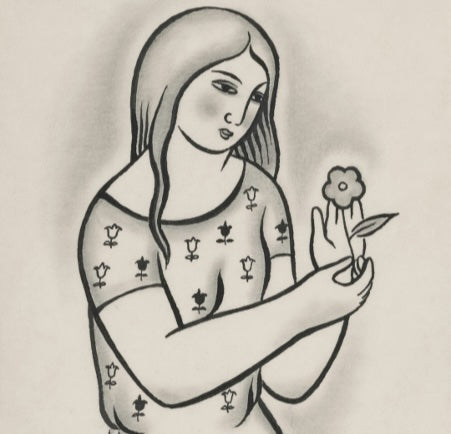
Healing Trauma Through Sacred Memory: The Wisdom of Mary Magdalene and the Divine Feminine Path
|
Time to read 4 min
|
Time to read 4 min
There are stories inside you that you don’t always speak aloud.
Some were shaped by sorrow.
Some were shaped by silence.
Some you’ve tried to forget just to keep going.
But here’s the truth that not many people say out loud:
For those who have lived through trauma, memory is not just personal—it’s sacred. And remembering isn’t weakness. It’s an act of reclamation.
It’s how you begin to return to yourself.
Modern neuroscience helps us understand what many survivors already know in their bones: trauma fragments memory. It can scatter your sense of time, distort your sense of self, and leave you unsure of what actually happened. Some memories are vivid, others missing. Some are buried for years, returning only when the body finally feels safe enough to allow them.
According to Dr. Bessel van der Kolk, trauma imprints itself not just on the brain but on the body, altering how memories are stored and retrieved. What this means, spiritually and emotionally, is that memory becomes tender territory—something to navigate with care, compassion, and deep wisdom.
In many faith traditions, memory is seen as holy. In the Hebrew Bible, God’s covenant is remembered through ritual. In the Christian Eucharist, Christ says: Do this in remembrance of me. And in the mystical tradition, memory isn’t just recalling the past—it’s a pathway to sacred presence.
When you remember with intention, you’re not just recovering lost information. You are restoring your connection to the meaning of your own life.
Mary Magdalene is often remembered as “the one who stayed.”
She remained when others fled.
She showed up when everything seemed lost.
She became the first witness of resurrection.
But beneath those titles is something quieter and deeper—Mary Magdalene is the keeper of sacred memory.
She didn’t turn away from pain. She didn’t deny the past. She bore witness. And in doing so, she became a trusted voice in the early Church—not because she was louder than the rest, but because she remembered what others had forgotten.
For those healing from trauma, Mary Magdalene offers something profound: the permission to hold your memories as sacred ground. Not because they’re easy, but because they matter. Because you matter.
You may have been told to “just move on.” You may have felt pressure to heal quickly, forgive too soon, or silence your pain in the name of strength or faith.
But the feminine spiritual path says something else entirely:
In trauma-informed spiritual practice, memory becomes more than a trigger—it becomes a threshold.
A place where healing and divine presence can meet. Where you begin to re-weave the threads of your life, not by erasing the past, but by remembering it differently—with you at the center, not the wound.
Sacred memory needs containers—spaces where it can be held without fear. This is where ritual, writing, and prayer become powerful tools.
You might begin by lighting a candle and naming one moment from your past that shaped you. Not to re-enter the pain, but to let your heart say: I see you. That mattered.
Or write a letter to your younger self—not from pity, but from wisdom. Speak to her as Mary Magdalene might have: gently, truthfully, without turning away.
You might also use a journal prompt like:
These small acts of remembering are not indulgent. They are revolutionary. Because every time you honour your truth, you rewire your nervous system with safety. You reclaim authority over your own story.
We discuss the many facets of Trauma in our Trauma and the Divine Feminine: A Sacred Guide to Healing article.
In The Mary Magdalene Way Prayer Journal, we speak of prayer not just as words, but as presence. A prayer can be a soft breath over a hard memory. A whispered truth that contradicts an old lie. A pause that says: I’m not abandoning myself today.
The journal offers you a sacred rhythm of noticing, blessing, and offering. You don’t have to arrive already healed. You only have to be willing to be with what is—and trust that grace will meet you there.
For the one whose memory feels scattered—
May you gather the pieces gently, without shame.
For the one who was told their story was too much—
May you speak it anyway, even if only in prayer.
For the one walking with Mary Magdalene—
May you remember what is true, what is sacred, what is still yours to reclaim.
You are not forgetting.
You are awakening.
With love and grace,
Rose Blessings
This journal is more than pages; it's a warm embrace-a place to explore, heal, and grow with love, intention, and the grace of Mary's enduring presence.
Sacred Ethereal Resources for Spiritual Growth


